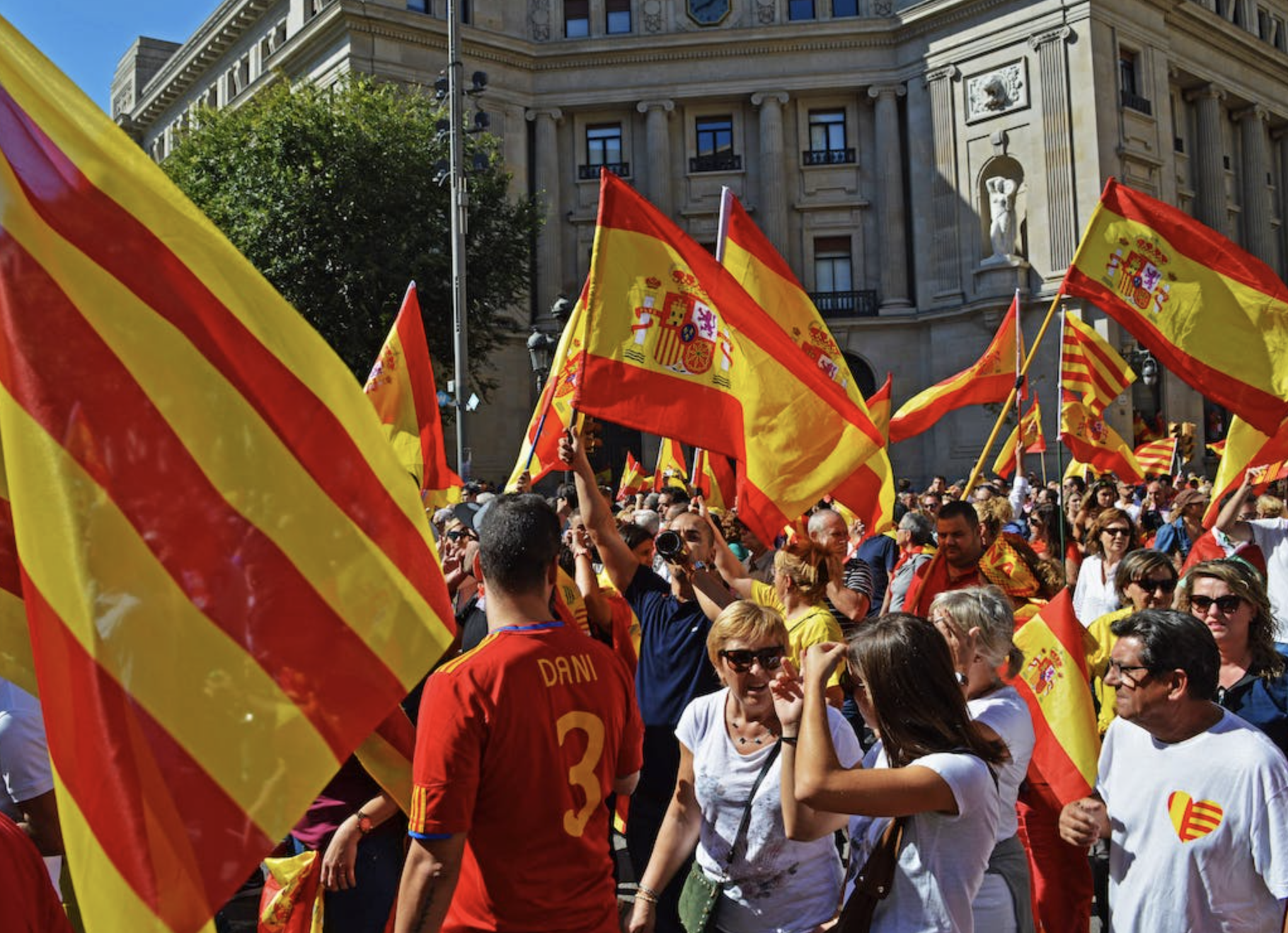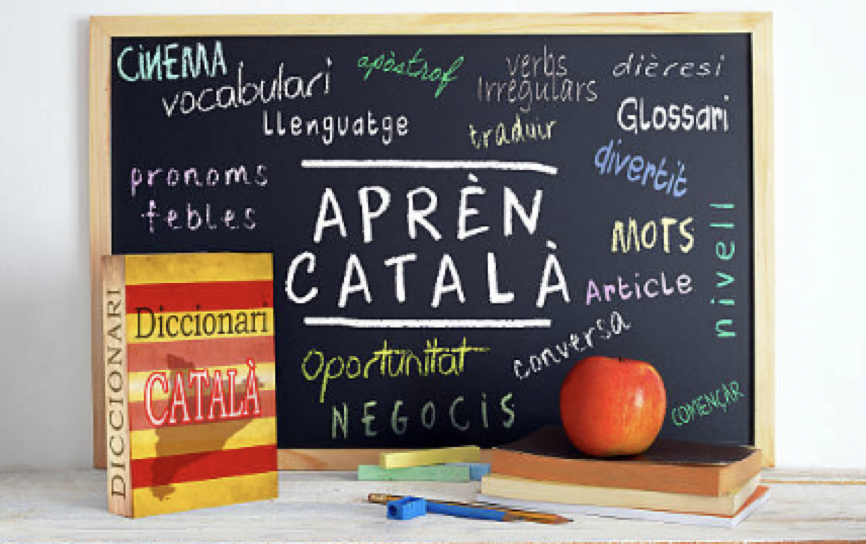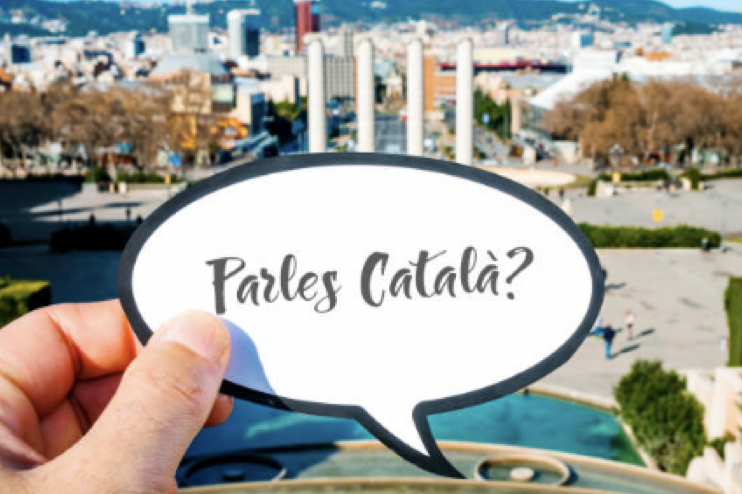If you are planning a holiday in Barcelona, you may have asked yourself whether you need to learn Catalan beforehand in order to get around.
As the capital of Catalonia, Barcelona is known for having a large number of Catalan speakers. We have put together a guide with some interesting facts and information about the Catalan language and culture to give you an overview on what you need to know.
And don’t worry, you don’t have to take a Catalan course for your holiday.
1. History
You don’t necessarily have to learn Catalan before coming to Barcelona, but it is still interesting and important to know some facts about the language and the culture. This will help you to better understand the locals and the typical customs of the region.
And don’t be alarmed, this article won’t turn into a boring history lesson. In fact, it’s quite the opposite! We want to show you how fascinating and interesting the historical and linguistic developments in Barcelona are and how you can easily discover more about them in a casual and enjoyable way.

Where does the Catalan language come from?
Most people might be a little surprised to learn that Castilian (the language that most foreign countries refer to as Spanish) is not the only language spoken in Spain. You may think that Catalan is a local dialect, but that’s not true, as it is as much an official language as Castilian. It evolved independently from the Vulgar Latin spoken by the Romans, who began colonising areas of the Iberian Peninsula around 197 BC.
From the province of Tarragona, a dialect initially spread, which gradually evolved into the Catalan language. This is the reason why even today traces of Italian, French and even similarities to Basque can be found in the Catalan language.
Nevertheless, the Catalan language has grown independently and it would be a great mistake to think that it is a mixture of other languages or dialects. Linguists and experts agree that the similarities and influences are comparable to those of German and French in comparison to Flemish or Dutch.
Evolution of Catalan over the centuries
To understand why the Catalan language is of such great importance to the people of Catalonia, we need to delve a little deeper into the history of this region. After all, if you want to learn a language, you need to know not only the vocabulary or grammar rules, but also understand the underlying background.
The Catalan language has fallen victim to censorship or prohibition more than once in the history of Spain. In 1714,when Barcelona fell to Spanish troops led by the Duke of Berwick, Catalonia lost its autonomy, then the central government imposed restrictions on the use of Catalan, and Castilian became the official language. It was only in the 19th century and with the rise of the cultural movement, renaixença (renaissance period), that Catalan was rediscovered as a literary language.
After the side led by Franco won the Civil War in 1939, he did everything to prevent the official and private use of Catalan. The speaking of the Catalan language was put under severe penalties and forbidden. As you can see, the Catalan people had to fight for their language, speak it in secret and protect it from extinction. So, it symbolises much more than just a language!
More about the Catalan history:
To discover more exciting facts about the Catalan history, we recommend a visit to the Museum of Catalan History. A must for those who want to delve deeper into history!
If that is not enough, you can visit the Wax Museum of Barcelona, where you can learn more about the origin of the Catalan flag and other aspects of the region’s history in a truly unique way.
2. Facts
Where is Catalan spoken?
Catalan is not only spoken in Catalonia. Currently, it is also spoken in Aragon, on the Balearic Islands, in Murcia and Valencia (two other autonomous regions of Spain), as well as in Andorra, where it is the official language too. Even in the region of Roussillon (France) and in the city of Alghero in Sardinia (Italy), people speak Catalan. According to surveys and calculations by the University of Girona (Gerona), a total of more than 9 million people currently speak and learn Catalan as their mother tongue or primary language.
For your information, in comparison, it is currently estimated that there are 378 million native speakers of the English language and over 523 million native Spanish speakers worldwide.
Is it a necessity to know Catalan when you visit Barcelona?
When you come to Barcelona for your holidays, you don’t have to learn Catalan to be able to communicate. The locals also speak Castilian and especially in the centre of the city, around the tourist attractions, you can also manage quite well using English. However, it doesn’t hurt to pick up a few words. The locals are always happy when someone tries to learn Catalan and this gives you the chance to put a smile on people’s faces.
3. Learning Catalan
Study material
If you are interested in learning a little Catalan, you have several options.
You could practise some basics and vocabulary by yourself at home, as there are different online resources that offer you practise material. How about watching some videos of locals or reading a book with the most important phrases and expressions?
If learning on your own is not your style, you can also take a language course when you come to Barcelona! That way you can learn the language alongside others. This is not only a great opportunity to learn a new language, but also to meet other people and spend some time in our beautiful city of Barcelona!
This way you can try out what you have learned with your next visit to a local store or the weekly market. If you are interested in a longer stay in the city for a more intensive language course, you will find many great options for your accommodation on our website.

Explore the City
Exploring the city is an easy and natural way to learn basic Catalan. Engaging in everyday activities exposes you to native speakers, which will massively enhance your listening skills. Additionally, when you are out and about, make sure you are looking at the signs, menus, posters etc that surround you, as this will help you to recognise common words and understand when to use them.
Basic Vocabulary
To get you started, we will give you some important vocabulary. These 20 expressions are definitely pretty useful to be able to communicate a little bit. And don’t worry, you don’t have to do it perfectly. As with other languages, the rule is: learning by doing. Bona sort! (good luck!)
| 1 | Bon dia! | Good morning! |
| 2 | Bona tarda! | Good afternoon / evening! |
| 3 | Bona nit! | Good night! |
| 4 | Hola! | Hi! |
| 5 | Adéu!/A reveure! | Bye!/See you later! |
| 6 | Si us plau | Please |
| 7 | (Moltes) gràcies!/Mercès! | Thank you (so much)! |
| 8 | Que vagi bé! | Take care! |
| 9 | Encantat! Molt de gust! | Nice/pleased to meet you! |
| 10 | Perdó | Excuse me/Sorry |
| 11 | Ho sento (molt)/Em sap greu | I’m (very) sorry |
| 12 | (Que) parles català/anglès? | Do you speak Catalan/English? |
| 13 | Com et dius? | What’s your name? |
| 14 | Em dic ______. | My name is ______. |
| 15 | (Jo) sóc el/la _______. | I’m ________. |
| 16 | D’on ets? | Where are you from? |
| 17 | Sóc de ______. | I’m from _____. |
| 18 | Vinc de ________. | I come from _______. |
| 19 | Com estàs? / Com va (tot)? | How are you? How’s everything/it going? |
| 20 | (No) ho entenc./ (No) ho comprenc. | I (don’t) understand. |

Now you’ ve already learned a lot about the Catalan language! If you enjoyed the article, have a look at our article about the history of the National Day of Catalonia!




Leave a Reply